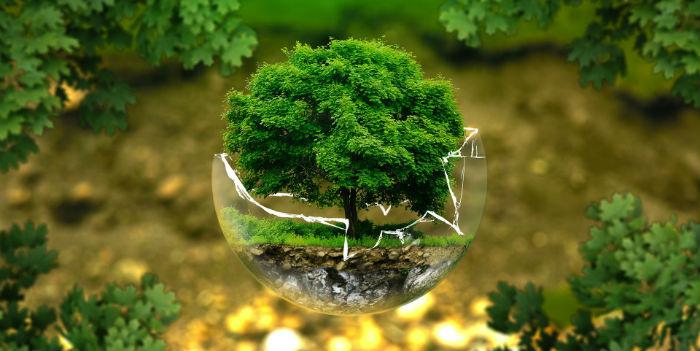 This first part presents a chronological summary of environmental concern, which influences the main concept of the article and should be considered in the formulation of coatings.
This first part presents a chronological summary of environmental concern, which influences the main concept of the article and should be considered in the formulation of coatings.
by M.Sc. Ph.D. Julián A. Restrepo R.
"I see humans, but I don't see humanity." The Little Prince.
It is increasingly common to find in the different media the word Sustainability and other concepts related to Sustainable Development, and how its application can be carried out in different areas, especially in scenarios related to the preservation of the environment. Likewise, and in parallel, it is worth mentioning that in recent years the issue of Social Management is also gaining strength [1].
According to the United Nations (UN), Sustainable Development is defined as one that allows the satisfaction of the needs of present generations without compromising the ability of future generations to meet their own needs (Brundtland Report, 1987) [2].
On the other hand, in the business field, we can say that Sustainability is considered as the ability of companies to remain in time, being profitable, generating value for their shareholders and stakeholders [1].
Thus, the concept of Sustainable Development has emerged as the guiding principle for long-term global development, where Sustainable Development seeks to achieve, in a balanced manner, based on three fundamental pillars: Economic development, social development and environmental protection [3].
It seems, then, that, by considering the issue of Sustainable Development more and more seriously, society has resumed its humanity by remembering that we depend on nature and that therefore we must make a responsible exploitation of it. In fact, the word exploitation would not be strictly correct, but to have a more responsible relationship with nature, in such a way that we guarantee that future generations are guaranteed the satisfaction of their own needs, which in some way is to make an appropriate use of current resources, so as not to affect the viability of future human beings ... it is a matter of Responsibility with the same human species, the other species and the planet itself!
Environmental Concern: Chronological Summary
To get an idea of the importance of the environment for different countries, I will present a list of the main international environmental summits in recent decades, starting in the 70s [4].
1972: United Nations Conference on the Human Environment, held in Stockholm, Sweden (also known as the Stockholm Conference). It was the first international conference on the environment that managed to bring together 113 nations (with the exception of the participation of the former Soviet Union and the former German Democratic Republic) and other stakeholders, in order to discuss issues of common concern, which represented a real milestone for modern thinking on environment and development [5].
1975: Environmental education summit in Belgrade, Yugoslavia. In this event, education is given a capital importance in the processes of change. It is recommended to teach new theoretical and practical knowledge, values and attitudes that will be the key to achieving environmental improvement. The goals, objectives and principles of environmental education are also defined and the so-called Belgrade Charter is generated, which points out the need to rethink the concept of Development and a readjustment of the concept of being and interacting with reality, by individuals [6].
1987: UN World Commission on Environment and Development, also known as the Brundtland Commission. It uses for the first time the definition of Sustainable Development, in its report entitled "Our Common Future" (or Report of the Brundtland Commission, a commission headed by Dr. Gro Harlem Brundtland, then Prime Minister of Norway), recognizing that the current advancement of society is being carried out at a high environmental cost [2].
1992: Earth Summit (World Summit on Sustainable Development) in Rio de Janeiro, Brazil. In which the idea of Sustainability was concretized and the reasons to explain the concept of Sustainable Development were exposed. This meeting was attended by the highest representatives of the governments of 179 countries, along with hundreds of officials from UN agencies, representatives of municipal governments, scientific and business circles, as well as non-governmental organizations (NGOs), among others. In it, world leaders adopted Agenda 21, with specific action plans to achieve Sustainable Development at the national, regional and international levels. The Earth Summit in Rio marked a milestone by producing agreements that comprehensively addressed global environmental issues, incorporating Sustainable Development as the main goal. In the early 1990s, the five summit agreements formed the most universal and articulated political response to establish an international cooperation regime, whose objective was to achieve the full incorporation of the environmental dimension into development [3] [4].
1997: United Nations Framework Convention on Climate Change in Kyoto, Japan, which generated the so-called Kyoto Protocol, an international agreement that aimed to reduce emissions of six greenhouse gases (carbon dioxide (CO2), methane (CH4), nitrous oxide (N2O) and three types of fluorinated industrial gases, hydrofluorocarbons (HFCs), perfluorocarbons (PFCs) and sulfur hexafluoride (SF6)), that cause global warming by an approximate percentage of 5%, in the period from 2008 to 2012, compared to emissions in 1990 [7].
2000: Millennium Summit at the UN headquarters in New York (USA). Where the so-called Millennium Declaration was signed, signed by 189 UN Member States and subsequently translated into a roadmap, establishing objectives to be achieved by 2015 [8].
2002: Earth Summit (World Summit on Sustainable Development) in Johannesburg, South Africa, where the Johannesburg Plan of Implementation was adopted, which was based on the progress made and lessons learned since the Earth Summit (held 10 years earlier), and provided for a more targeted approach, with concrete actions and measurable targets, with deadlines and goals [3] [9].
2011: Report of the UN Environment Programme (UNEP) or Human Development Report, states that the pressing global challenges of sustainability and equity must be addressed together and, at the same time, identifies those national and global policies that could give a boost to the achievement of these linked objectives [10]. It indicates that investing 2% of global GDP in ten key sectors can launch a transition to a low-carbon, more resource-efficient green economy, with the sectors identified as key:
- Agriculture
- Buildings/construction
- Energy supply
- Fishing
- Forestry
- Industry (including energy efficiency)
- Tourism
- Transport
- Waste management
- Water
2012: United Nations Sustainable Development Conference in Rio de Janeiro (Brazil), also known as Rio 2012 or Rio+20. Its objectives were to ensure renewed political commitment to Sustainable Development, to assess the progress of its poor implementation in meeting the commitments already agreed and to address new and emerging challenges. Rio+20 focused on two themes: (i) Green Economy in the context of sustainable development and poverty eradication and (ii) the institutional framework for Sustainable Development. The 193 delegations participating in the Rio+20 Conference reached a minimum agreement on the draft conclusions entitled "The Future We Want".
However, despite the importance of this meeting, environmental and environmental organizations described the final text as "disappointing" or a "colossal failure": "An early morning of negotiations so that diplomats end up disappointing the world. They should be ashamed of their inability to reach an agreement on such a crucial issue," said Jim Leape, director general of the environmental NGO WWF [11]. For its part, the Brazilian government insisted that the success of Rio+20 lay in the fact that 193 nations have reached a consensus quickly and without entering into bitter discussions [12].
2015: United Nations Framework Convention on Climate Change in Paris (France). The final agreement, the Paris Agreement, established measures for the reduction of Greenhouse Gas (GHG) emissions through the mitigation, adaptation and resilience of ecosystems to the effects of Global Warming, its applicability would be for the year 2020, when the validity of the Kyoto Protocol ends. The agreement was negotiated during the XXI Climate Change Conference (COP 21) by the 195 member countries, adopted on December 12, 2015 and opened for signature on April 22, 2016 to celebrate Earth Day [13].
Note: In the second part, the concept of Circular Economy will be developed.
* M.Sc. Ph.D. Julián A. Restrepo R. Advisor and Technical Consultant in Coatings President STAR (Association of Andean Technicians in Coatings). Mail: [email protected] - Medellín, Colombia.

























Leave your comment